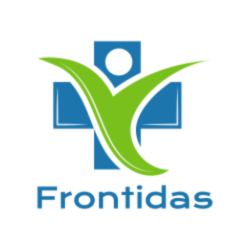Creating a budget for retirement is crucial for seniors wanting to maintain financial stability. Nearly 80% of Americans over 60 years old experience financial insecurity. Thus, mastering effective budgeting is a vital aspect of financial planning for older adults. By employing smart retirement budgeting techniques, seniors can manage their expenses and enhance their savings.
Living on a fixed income is common for most seniors. Applying strategies like the 70/30 rule—living on 70% of your income and saving the rest—helps. This approach offers a solid plan for handling finances, leading to more stability and independence.
For more tips on managing your budget, check out this insightful article on maximizing pension income for senior housing.
Key Takeaways
- Understanding your income sources is the first step in retirement budgeting.
- Differentiating between fixed and variable expenses helps in creating a more accurate budget.
- Establishing clear short-term and long-term budgeting goals supports financial stability.
- An emergency fund is essential for navigating unexpected expenses.
- Regular budget reviews can help you adapt to changing financial circumstances.
Understanding Your Retirement Income Sources
Starting your retirement income management effectively means understanding your sources of income. Knowing your monthly expected income is crucial for budgeting and financial stability.
Social Security Benefits
Social Security benefits are a key income source for many retirees, with an average monthly amount of $1,978.77. This income is essential for managing daily expenses. It’s important to understand your eligibility and what you might receive.
Pension Plans
Pension plans offer a reliable income for those who have access to them. If you have a pension plan, understanding its details is key to your budgeting process.
Investments and Savings
Your financial security also depends on investments and savings, like IRAs and 401(k) accounts. These should be considered in your retirement income strategy. It’s essential to regularly review your investments and savings to determine sustainable withdrawal amounts.

Categorizing Your Monthly Expenses
Grasping your expenses is critical for managing retirement finances. A solid budget distinguishes between fixed and variable expenses. This division aids in careful fund allocation and achieving financial goals.
Fixed vs. Variable Expenses
Fixed expenses are steady costs such as housing and insurance. These require uniform budgeting efforts. Conversely, variable expenses, like groceries and utilities, can change monthly. Recognizing these allows for budget adjustments and implementing senior budgeting strategies. Periodically review expense categories to match your evolving needs.
Discretionary Spending
Discretionary spending includes luxuries such as eating out and entertainment. Though pleasurable, they can strain your budget if not moderated. Analyzing discretionary spending reveals potential savings, protecting your reserves for essentials. Careful management of these expenses bolsters financial health in retirement.
Healthcare Considerations
Healthcare stands as a significant concern for seniors, with costs generally increasing with age. Seniors often dedicate 10-15% of their budget to healthcare. A 65-year-old may encounter an estimated $165,000 in healthcare costs during retirement, says Fidelity. Setting aside healthcare funds ensures readiness for treatments and medications, echoing sound budgeting advice.

Thoughtful categorization of monthly expenses streamlines retirement finance management. For detailed guidance, explore this resource on financial planning for retirement.
Setting Realistic Budgeting Goals
It’s essential to establish effective budgeting goals for a stable retirement. You must balance immediate wants and long-term dreams. This balance is crucial in retirement savings and financial planning for seniors.
Short-term vs. Long-term Goals
Short-term goals like saving for a vacation add motivation and joy. Long-term goals, however, ensure a steady lifestyle in retirement. Understanding these differences guides wise resource allocation.
Emergency Fund Importance
Priority one should be creating an emergency fund. This fund should cover up to six months of expenses. It safeguards against unforeseen expenses, securing your financial well-being in retirement.
Adjusting for Inflation
When planning your budget, consider inflation’s impact. Rising costs can reduce your buying power over time. Adjusting for inflation is crucial to your financial stability in later years.
Tools and Resources for Budgeting
Retirement finances may seem overwhelming, but the right tools simplify budgeting. Exploring different tools helps you discover what fits your needs. Whether you lean towards digital solutions or manual methods, numerous resources can aid your budgeting process.
Budgeting Apps and Software
There are budgeting apps designed with seniors in mind. These apps feature easy-to-use interfaces, making it a breeze to monitor your finances. Options like Mint, You Need a Budget (YNAB), and PocketGuard are popular. They offer unique features to help organize your finances and keep your budget on track.
Traditional vs. Digital Methods
Digital financial tools are gaining popularity, yet traditional methods remain beneficial. For those who prefer a hands-on approach, pen-and-paper or Excel for expense tracking can be ideal. Both strategies are effective in financial management, giving you the freedom to choose what’s best for you.
Seeking Professional Advice
Getting advice from a financial planner can significantly bolster your budgeting strategy. Experts provide personalized budgeting advice and can introduce tools like the National Council on Aging’s BenefitsCheckUp. This program helps retirees find vital assistance services. Such professional guidance is invaluable in creating a solid financial plan, ensuring peace of mind.

Review and Adjust Your Budget Regularly
Regularly reviewing your budget is crucial for maintaining financial health in retirement. It’s one of the top strategies for retirement budgeting. Monthly reviews help you spot spending trends and adjust for unexpected costs or income changes. By being proactive, you’re prepared for financial surprises.
Being flexible with your finances is vital, especially for retirees. For example, if healthcare expenses increase, shift funds from less critical areas. This ensures your main needs are covered, maintaining your financial health. Adjusting your budget can be a simple, yet powerful tool.
Celebrating your budgeting successes is also important. Recognizing when you’ve kept to your budget boosts motivation and encourages continued good financial practices. These celebrations keep you motivated. For further financial planning resources, check out important tips for retirees.
